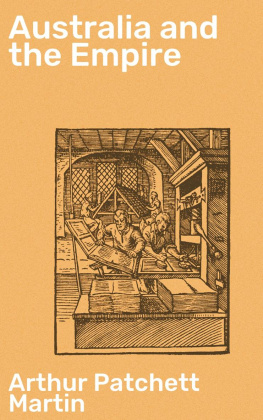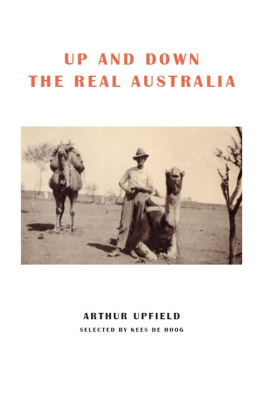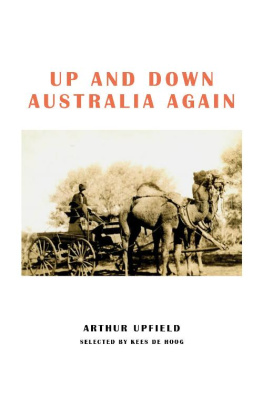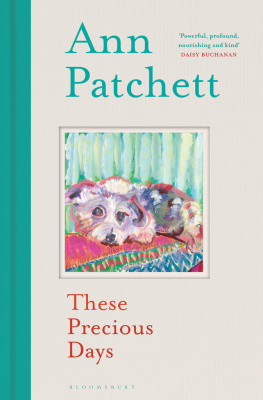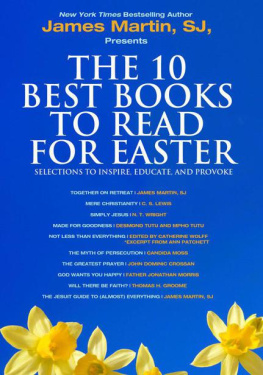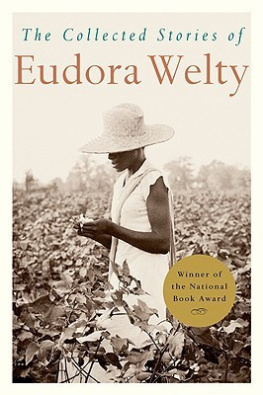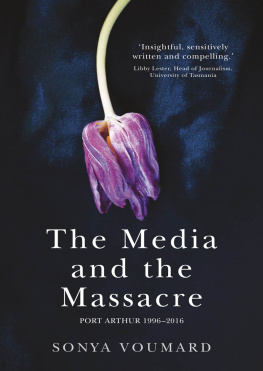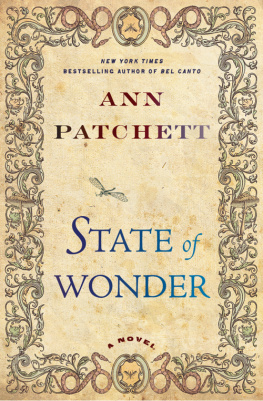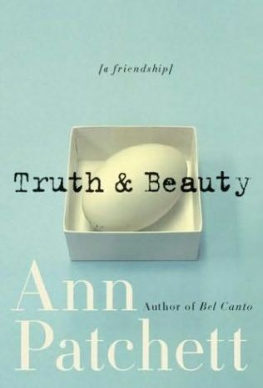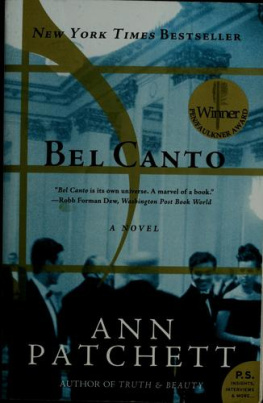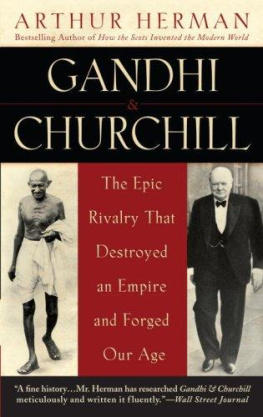CHAPTER I.
Table of Contents
ROBERT LOWE, VISCOUNT SHERBROOKE, IN SYDNEY.
In attempting to give, in the compass of a short book, some general account of the interdependent relations between "Australia and the Empire," I think I may lessen my reader's labour, as well as my own, by opening with two retrospective sketches. In the first, which takes us back some forty years, I propose to give a brief, but hitherto unwritten narrative of the public life in New South Wales of one of the most brilliant of contemporary Englishmen. And this may be not unfitly followed by a description of the England of a quarter of a century ago, as seen by the distinguished Australian statesman who may be said to have commenced his public career in Sydney under the gis of Lord Sherbrooke, and who is at the present time once again Prime Minister of New South Wales.
So quickly do events succeed one another in the nineteenth century, so multitudinous are our printed records, and so inexorable is the law by which bygone mental impressions are obscured by fresh ones, that the memorable Australian career of Robert Lowe seems already to have been relegated to the shadowy realm of ill-remembered tradition. One has only to ask one's best-educated friends, whether Englishmen or Australians, a few questions concerning "Robert Lowe in Sydney," to discover that this is no exaggeration. The present writer, in his search for evidence on a disputed point in earlyor rather "medival"Australian history, was somewhat astonished to learn that one of the most intelligent officials of the British Museum was quite unaware of the fact that Lord Sherbrooke had ever resided, much less been a public man, in the Colonies. It would, of course, be hardly possible to find an Australian, in any corresponding social position, so entirely ignorant of Lord Sherbrooke's career in New South Wales. But if catechised it would probably be found that his knowledge is exceedingly dim and shadowy, and could be summed up by saying that once upon a time Robert Lowe, now Viscount Sherbrooke, was a member of the old Sydney Legislative Council.[1]
Robert Lowe, "Barrister-at-Law, and Fellow of Magdalen," arrived in Sydney in 1842, during the governorship of Sir George Gipps. The early Colonial Governors were "advised" by a Council, and the representative principle had just been partially introduced into the constitution of this body in New South Wales. This was effected in 1842 under the rgime of the late Lord Derby, then Lord Stanley, who, as Secretary of State, succeeded in passing the "Constitutional Act for the better government of New South Wales." The Council consisted of thirty-six members; six officials, six Crown nominees, and twenty-four elected on a property qualification, six of whom were for the province of Port Phillip, now the independent colony of Victoria. This, the inauguration of the parliamentary system, was an exciting time both for the Governor and for the colonists. The Rev. Dr. Lang, one of the six members for Port Phillip, who has been truthfully described as "the greatest Scottish-Australian public man," gives a sketch of this early Sydney Parliament which is worth preserving:
"As a General Election and a partially representative Legislature were new things under the sun in Australia, and as the crisis at which the first election took place was a peculiarly trying one for the colony, the interest excited in all quarters was intense, and the result was by no means unsatisfactory. Indeed, for general ability, for extent and variety of information available for the business of legislation, for manly eloquence, for genuine patriotism, and for energetic and dignified action, I question whether the first Legislative Council in New South Wales has ever been surpassed by any Legislature out of England in the British Empire."
To justify this high eulogium Dr. Lang proceeds to enumerate half a dozen leading names, including that of Robert Lowe, whom he characterises as "a barrister of super-eminent ability and of brilliant oratorical powers." How came the newly arrived Fellow of Magdalen, it may be asked, so quickly to find his way into the Sydney Parliament? When Sir George Gipps, the first Governor of New South Wales, who was " hampered," as he would have said, by a body of Representatives, contemplated the results of the first elections in Australia, he might well have been appalled. The political capacity and debating power in two members alone of the "Opposition," William Charles Wentworth and John Dunmore Lang, far exceeded all that could be brought against them by the entire Ministerial benches, officials and nominees combined. Sir George Gipps, though utterly self-willed, and therefore often impracticable, was a clever man, and by no means undiscerning as a judge of the capacity of others. In the young English barrister, who had so recently stepped upon the shores of Port Jackson, the much-harassed Viceroy thought he could detect an intellectual gladiator capable of holding his own even against Wentworth and Lang. Accordingly, on November 10th, 1813, his Excellency nominated "Robert Lowe, Esq., Barrister-at-Law," to a seat in the Legislative Council. But the new member, as the sequel will show, was not of the material out of which the pliant placeman is manufactured. On August 20th, 1844, a memorable debate took place in the Sydney Legislative Council. On that evening Dr. Lang brought forward his celebrated motion for "the separation of Port Phillip from New South Wales, and its erection into a distinct and independent colony." With the exception of the five other members for Port Phillip, he had only one supporterand that was Sir George Gipps' new nominee. With characteristic egotism Dr. Lang merely records the fact, and pays but scant tribute to the independence of mind that could have prompted such a vote, or could have supported it by so memorable a speech as Robert Lowe delivered that evening. I will endeavour to supply the Doctor's deficiency, by quoting the opening sentences of an address that was alone sufficient to raise the level of the debate from a mere provincial wrangle into the rare region of statesman like deliberation and discussion.
"As a general rule," began the new nominee member, "the interests of the Colonies are not consulted by frittering them away into minute particles, but by combining as large a territory into a single State as could be effectually controlled by a single Government, I cordially agree in the abstract truth of the motto prefixed to the article in the newspaper of this morning that ' Union is Strength'; and I would extend that principle to the whole Colonial Empire of Great Britain. I hold and believe that the time is not remote whenGreat Britain will give up the idea of treating the dependencies of the Crown as children to he cast adrift by their parent as soon as they arrive at manhood, and substitute for it the far wiser and nobler policy of knitting herself and her Colonies into one mighty Confederacy, girdling the earth in its whole circumference, and confident against the world in arts and arms." This truly Imperial outburst was uttered, be it observed, wellnigh half a century before the Imperial Federation League was dreamt of. Although, as a colonist, I cannot see my way to adopt any of the schemes that have lately been propounded for the more complete fusion of Great Britain and her Colonies, I think this eloquent sentence which Robert Lowe uttered so many years ago, in the old Legislative Council of Sydney, forms a fit and noble motto for all of us, whether Englishmen or colonists, who are loyal to our beloved Sovereign, and faithful to the obligations and traditions of our common race and heritage. As such I have adopted it as the motto of this book.


